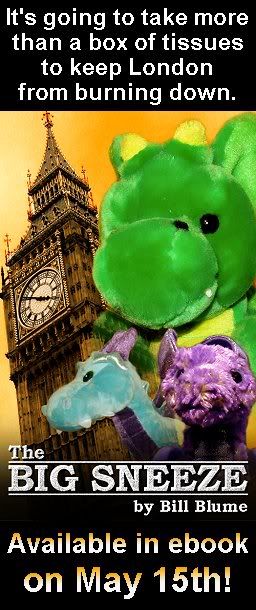Even though Operation Smokeout was published more than a year ago, it’s suddenly turned into a much more timely book. For me personally, it’s timely because the writer, who is a friend of mine, will be part of a panel I’m moderating at this year’s James River Writers Conference. What makes it so much more relevant for everyone is that the focus of Tony Jones’ story is Cuba and its infamous leader Fidel Castro.
 Castro (the real one) has made it into the headlines with his recent health problems, in which he temporarily handed over control of his country to his brother. In Tony’s book, Castro’s brother attempts a coup. Another interesting parallel has to do with a large oil deposit off the coast of Cuba. Tony says he knew that would give the U.S. plenty of motive to depose Castro and replace him with a more capitalist-friendly government. Ironically enough, a similar deposit of oil was recently found off the coast of Cuba.
Castro (the real one) has made it into the headlines with his recent health problems, in which he temporarily handed over control of his country to his brother. In Tony’s book, Castro’s brother attempts a coup. Another interesting parallel has to do with a large oil deposit off the coast of Cuba. Tony says he knew that would give the U.S. plenty of motive to depose Castro and replace him with a more capitalist-friendly government. Ironically enough, a similar deposit of oil was recently found off the coast of Cuba.I’ve known Tony for years, but I still didn’t really know what to expect once I started reading Operation Smokeout. I was surprised to find his book is more of a straight action thriller, much in the vein of Clive Cussler’s books. This comes complete with the requisite too-good-to-be-true hero Schaffer O’Grady. Now an award-winning reporter for the Washington Post, Schaffer’s in good with the president. That happens when you’re a former member of his Secret Service who’s managed to take a bullet for the president, not just once… but twice.
 Operation Smokeout starts off when a member of the president’s Cabinet is assassinated in front of the Lincoln Memorial. Schaffer witnesses the murder and starts a hunt for the killer, with plenty of facts pointing to his friend Alex (that would be the president).
Operation Smokeout starts off when a member of the president’s Cabinet is assassinated in front of the Lincoln Memorial. Schaffer witnesses the murder and starts a hunt for the killer, with plenty of facts pointing to his friend Alex (that would be the president).I will admit that it’s a little awkward reading about Castro as a fictional character within a book. I’ve gone back and forth on that one. Certain scenes with Castro in them kind of break the reality. You can’t help but ponder how close Tony’s interpretation of the Cuban leader is to reality, but to make up a fictional replacement for Cuba and Castro with different names would be much worse.
As I mentioned, Tony will be part of a panel I’m moderating at this October’s James River Writers Conference. The topic is "Publish or Parasite: Whether and When to Self-Publish." He’s going to be joined on this panel by science fiction writer Dave Kuzminski (also well-known for his website "Preditors & Editors") and editorial consultant Marcela Landres. I’ve got plenty of homework to do for this during next month, so I’ll probably post some of my findings as the conference nears.




































































